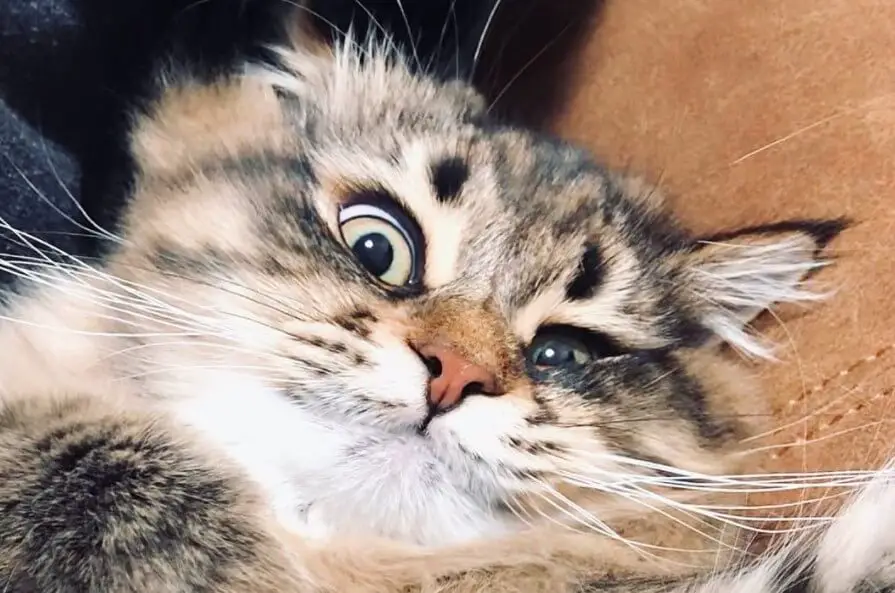When the house tiger sneezes, there is not always cause for concern. Your cat’s frequent sneezes and gasps can have a harmless or serious cause. Treatment depends on who triggered the sneezing fits.
Cat Sneezes Shortly

Sometimes an acute stimulus in the nose triggers sneezing. On the other hand, if the cat sneezes often, it may have a cold. If the cat chokes and sneezes at the same time, there may be a serious illness such as cat flu behind it.
Basically, you can have your darling vaccinated against cat flu.
Often Harmless Causes of Sneezing
Dust or artificial odors
Cats have sensitive noses. Often an acute stimulus causes your fur nose to suffer from sneezing fits. Under certain circumstances, this can be related to the dry room climate. Unlike humans, cats have around 60 million olfactory cells. You can therefore smell three times as good and perceive the finest rumors. For this reason, the velvet paws are very sensitive to certain smells in the household. Grains of dust, artificial perfumes, or intensely fragrant flowers are possible causes. You can treat these triggers yourself with simple measures.
- A humidifier makes the room climate more comfortable for your cuddly cat so that he sneezes less.
- Regular vacuuming reduces the amount of dirt and dust in the house.
- Strongly scented detergents should not be used when cleaning the apartment.
- If you clean the litter box regularly, it will not give off an unpleasant odor.
- It is not necessary to use fragrant deodorants or cat litter for the litter box.
- The cats are often sensitive to fragrant fabric softeners.
You shouldn’t overdo it with thoroughness. It is important for young cats to get to know as many new smells as possible. The more smells the cat perceives and “stores” in its memory, the less often it sneezes due to daily environmental influences.
Cold
An outdoorsman likes to roam around even on cool days. Sometimes it happens that the cat catches a cold and sneezes more and more. Immediate action is then important. Your kitten should relax and rest in a warm place. With an acute inflammation of the mucous membranes, you can help your kitty with globules. These one-millimeter small spheres from classical homeopathy help as soon as the cat sneezes. In addition, pay attention to the general well-being of your cat in the coming days. If the symptoms persist for a long time despite the homeopathic treatment, a medical examination of the four-legged friend is necessary.
Allergies
If your cat sneezes strangely, it may be related to an allergy. Such an allergy occurs when your darling cannot tolerate the food. The cat sneezes less often because of pollen or flea saliva. It is advisable to first observe the velvet paw for some time and to question its behavior. Does she only sneeze at a certain time of the year? Does the cat sneeze and vomit frequently after eating a certain food? Does the kitty sneeze after wandering around outside? If you are unsure which substances the cat can tolerate or not, you can do an allergy test at the vet.
Cat Sneezes and Watery Eyes: When to See a Doctor
Cat flu
There is not always a harmless cause behind the cat’s frequent sneezing fits. If the cat sneezes constantly while cleaning and has reddened mucous membranes, you should think about cat flu. This is to be differentiated from “common” cat flu. A harmless cold subsides after a few days. Cat flu, on the other hand, can be life-threatening for your darling. This disease is caused by viruses and bacteria and is spread from cat to cat. Young and unvaccinated cats are particularly at risk of developing cat flu. The first symptoms of cat flu appear around two to five days after infection:
- The kitty suffers from a constantly runny nose.
- The cat sneezes often and for a long time.
- The house tiger no longer eats and sleeps a lot.
- Shortness of breath and difficulty swallowing occur.
- The cat’s eyes are inflamed, reddened, or sticky.
Untreated cat flu is chronic. In the worst-case scenario, if the upper respiratory tract becomes infected, it can kill your cat. If you have any unusual symptoms, you should see the veterinarian immediately. This is especially advisable if the cat sneezes and gasps blood. Then you can assume that it is a dragged cat flu.
The cat sneezes blood – a symptom of a medical emergency
Visiting the vet is imperative if the cat sneezes blood. Often it is a consequence of an accident. If your cat sneezes after a fall, you can first rely on homeopathic remedies. If this does not stop the bleeding, you must see your vet. This gives the cat Traumeel tablets or phosphorus in the event of a nosebleed.
Laryngitis
Inflamed upper airways are often associated with an inflamed larynx. If your four-legged friend suffers from inflamed vocal cords, the cat sneezes strangely. The cat can also sneeze and choke. The pressing larynx causes severe pain, which makes the cat vomit or cough. In this case, too, a visit to the vet is advisable. The medical professional has several options to treat the inflamed airways. For example, he can use the homeopathic remedy Spongia. Spongia helps with acute respiratory infections and bronchitis. The doctor also uses sundew, phosphorus, or ipecacuanha to treat sputum from the sneezing cat.
As Soon As Your Cat Sneezes, Watch Them Closely
It is advisable to watch the animal closely. Unless there are any other symptoms, you can treat the cat’s sneezing on your own. Support the healing process with a warm place in the apartment or house. Make sure that your cat with a cold is drinking enough fluids. However, as soon as the cat sneezes and chokes or the sneeze is accompanied by an expectoration, you should see a vet. Serious cat flu or other infectious diseases should never be treated on your own. In this case, only the homeopathic remedies and antibiotics that the veterinarian prescribes help. Recommended preparations from human medicine such as paracetamol are poisonous for cats and therefore taboo.

